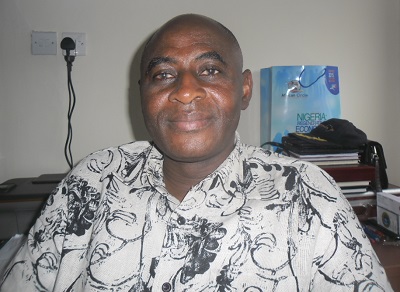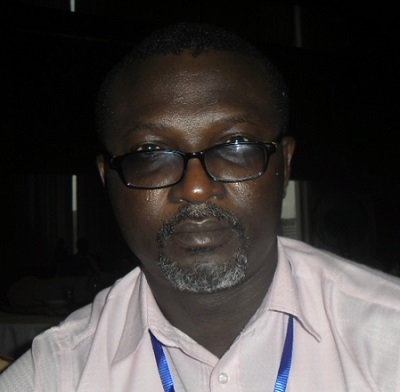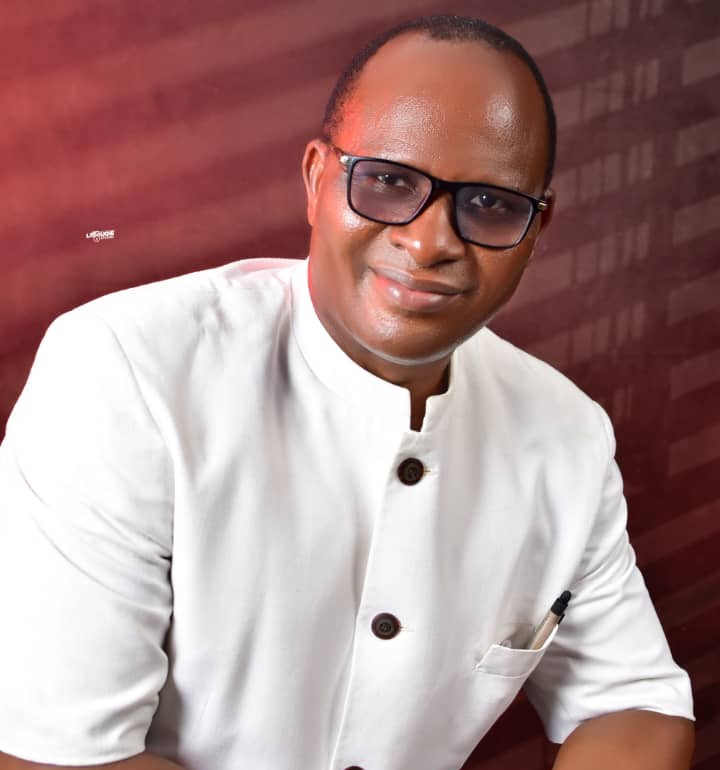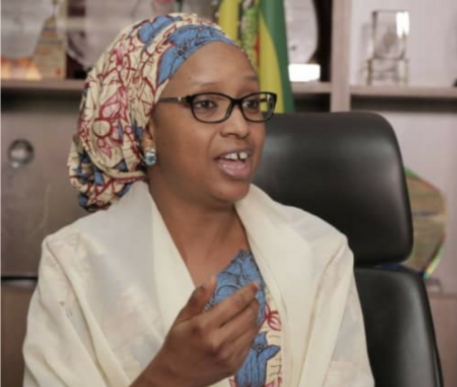NIMASA Fraud: I Was The First To Be Invited By EFCC – Jauro, NIMASA DG
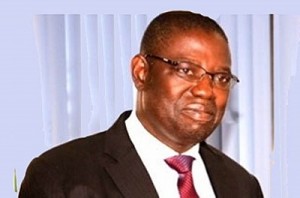
The Director General of the Nigerian Maritime Administration and Safety Agency (NIMASA), Mr. Baba Haruna Jauro, was the guest of Vanguard editors when he paid a visit to the corporate headquarters of the media house penultimate week. Jauro spoke, during the session, on issues bordering on maritime in the country as well as the implementation of the Cabotage Act among others. Excerpts:
I think the first point you should clear is the seeming controversy surrounding your appointment?
The directive of Mr President was clear that the former DG had been relieved of his post and that he should hand over to the most senior officer. That was the instruction; whatever happened after that I do not know, but the information came that Mr. Calistus Obi, the ED Maritime Labour, was to be handed over the office.
So, if the instruction was to hand over to the most senior, then we had to clarify who was the most senior because I am the most senior and investigation went on. From our date of resumption and our file numbers, it was clear that I reported first; so I happen to be the most senior and, because of that, that directive was reversed.
You are most senior by hours, so they say?
I am senior by a day. Even if it was five minutes, if your file number is ahead and you came the same day,you are the most senior. So a day is a long period.
Now that you have taken over as DG, what is the degree to which NIMASA was involved in the developments that happened before the general elections. Is it true that the agency funded anti-Buhari broadcast that ran on some television stations? That is number one. Is it correct to say that NIMASA was, at a point in time very recently, not able to meet its commitments because the agency had been run aground and, number three, I will like to know the collaboration between NIMASA and some former militants from the Niger Delta area?
Political developments that happened before the elections, yes, there were rumours that NIMASA sponsored some adverts but it is not so because we do not have approval for such as an agency. We cannot, as a government agency that should be non-political, be involved in political campaigns. NIMASA did not sponsor any campaign against anyone because we are not a political entity. On the agency being run aground, that also is not true. The agency has been carrying out its duties; there has never been a situation where it failed to perform any of its functions.
On the issue of collaboration with militants, you know that even the mention of militant is not a good thing. So, as a responsible agency, there is no way we can collaborate with militants for anything.
But there is this company providing services for maritime security in collaboration with the Nigerian Navy. The company allegedly belongs to ex-militant leader Government Tompolo. What is the story?
The story about Global West Specialist Vessels Limited, GWSVL, is that we have a public private partnership, PPP, arrangement. There was due process on the engagement of Global West as a private partner to boost revenue generation of NIMASA. What brought about that was because NIMASA needs platforms, vessels, to be able to go on the waters to visit ships (calling at the nation’s ports), board them and perform our functions, and we didn’t have such platforms.
Number two, such work cannot be done in the office. The manpower to do that, the capacity was not there and we are working in an environment where, unless you use force, people do not pay the levies they are supposed to pay; that is why the issue of the PPP came up. But there was due process, the documentation was done properly, it was taken to the Federal Executive Council, FEC, it was approved before the contract was given to them and they have been keeping to their side of the bargain. If you look into records, you will find that we have had increases in revenue. Chief Tompolo is just an individual; Global West is an entity and, when government was coming into the agreement, all documents relating to the company were verified.
At a stage, it was reported that the management was not able to pay salaries for close to six months?
That is not true. I think what happened was that we had months that we were supposed to pay some allowances to our staff and the month came, and we could not; and it was as a result of having to convert the funds, not that the funds were not there. And the gap was just about three weeks, the issue of six months is incorrect. Another reason for the out cry was that some staff had arranged with banks, they had taken loans so that when the allowances come, the loans will be paid but if the money did not come at the time it was supposed to come, the interest on the loans will increase; that is why the staff were agitated.
How secure are the nation’s waterways now because NIMASA is supposed to secure the ports. Most of the ports are not busy because of security issue which makes importers to refuse to bring in their goods through Calabar, Port Harcourt and Warri. The crude oil theft that is affecting the economy, how do you intend to tackle the problem? There is also the issue of down grading some category of the NIMASA staff. How true is the downgrading story and what is responsible for it?
On security on our waterways, our waterways are now more secure than they were years back. Throughout last year, we had no case of piracy in the Lagos area. Even the Escravos area, we are entering there to make sure that everything is alright. The real problem we have now is around Brass and Qua Ibe; and we are collaborating with the Nigerian Navy to make sure that the waterways are safe.
On crude theft, there are two aspects to it. You have the loss and the real theft. Even then, the theft has reduced drastically. The navy, Civil Defensee, we have been working with them to end the theft. We are trying also to procure surveillance equipment to monitor the airspace and under the water.
On the downgrading of staff, no worker has been downgraded so far. An effective, well motivated and trained workforce is a requirement for every outfit that wants to be effective. The NIMASA staff have been seriously demoralized simply because some of them have been in the same position for 10 years and above. Meanwhile, some workers just came in and were given higher positions; so the staff already there are saying ‘those of us here before can also do it’ and that is why the staff started agitating,
So when we came in, what we did was to go to our supervising ministry to say our staff morale needs to be boosted and that the best way to do it is to place the staff properly, that is, those that have not been promoted in the last 10 years. So we have a committee that is addressing that issue. But we have nothing like downgrading the staff. What we are doing is to ensure that our staff are placed in their areas of competence so that their morale can be boosted and they will be happy working.
What happened to the new staff that were given positions ahead of the old staff?
They are there. But if your years of experience in service is not up to where you are, maybe the committee will recommend and we take the issue from there.
That has not been done yet?
No, it has not been done yet.
But you have been moving some staff round
Yes. Reshufflement is a normal administration function of every establishment. We are just trying to take people to their core areas of operation and you will find that we work based on federal character provisions because each and every zone is represented. We put people where they can function better.
You said that oil theft has reduced. If so, why is it that we still hear of arrest and we put a figure to the theft? If it is reducing, by what percentage and how soon can we get to the zero point?
I do not have a figure to quote now but I can provide that maybe in due course, but the issue of arrest, we have arrested many people who we handed over to the police. The issue of prosecution is a function of a different agency; ours is to monitor and I think we are doing our best.
You said you got into the PPP deal in order to increase your revenue profile. How much were you generating before the deal and how much are you generating now?
We are presently doing our calculation to show the difference between where we were and where we are now because of the PPP. I do not want to talk about figures but they could have been out by now but because we had a function that took us out of office. As soon as we are through, we will get it across to the media. It will show how we have grown from where we were to where we are.
We have a deadline from the Presidency for ministries and agencies to comply with the Treasury Single Account, TSA. Has NIMASA complied?
NIMASA has complied. We have opened an account with the Central Bank of Nigeria, CBN; we have given our banks the mandate to accept the platform.
There were allegations of contract racketeering, nepotism and mismanagement in NIMASA. How true are these allegations?
When we came in, we put in place committees to look at various aspects of our operations for the purpose of transparency and accountability. On projects, we have an in-house committee that went round to see what was on ground. We have another committee to look at the files of the projects. We also told our supervising ministry to bring experts to look at the projects. The experts are already on field. We do not believe there was racketeering. We did not report that. I will not like to talk much on the contracts that were awarded since there is a committee in place, let the committee do its work and come out with a position, then we will look at it and form an opinion. For now, we do not want to say there was racketeering.
This is the era of change. What changes are you bringing to NIMASA because some people still think its business as usual in the agency?
I do not want to believe that in NIMASA it is business as usual because, if you say that, it means we are not changing with others; and that is not true. Change is what is constant and, unless one is changing, then there is no progress. We have a core mandate to regulate the maritime industry and promote indigenous capacity. We see ourselves achieving change where it affects the economy. So far, we have been involved in training seafarers; we have been involved in building institutions that will, in turn, build manpower; we are involved in bringing a shipyard or dockyard so that we can have ships built and repaired here. We are trying to see how we can implement the Cabotage Act. We are trying to see how we can create the wealth that the nation needs, create employment; we are really in need of seafarers because I am told the average age of a seafarer is 58 and, by the time they reach 60 to 65, they are out of business. So we are trying to see how to bring it down to between 30 and 35. We are going to be part of the change the country needs so that our economy can grow.
What is the shape of the Cabotage Vessel Financing Fund, CVFF, that NIMASA introduced? Second, I know that you are involved in the maritime education project and I know that University of Lagos is one of the institutions in it. You are giving grants to institutions to develop the maritime institute. What is happening to the project?
The CVFF is a fund under which applications are processed and sent to the Federal Ministry of Transport. Due diligence is done on the applications before funds are disbursed. NIMASA has done its part; we have processed some applications and passed them to the ministry. We used to have Ship Building and Ship Acquisition Fund that was disbanded because it was not properly utilized. Government is wary of a repeat of the past and, therefore, trying to guard against such misuse. They were on it and could not finish before the change era came. A minister is not in place yet but by the time a new minister comes in, the ministry is going to revisit those applications. They will be processed and those to benefit will know themselves.
On the maritime project, we are involved in establishing maritime institutions in about six universities. The reason it has slowed down is what one of the committees going round will find out. Ordinarily they should not have slowed down; as far as I am concerned, work should be going on.
All those contractors who brought certificates and requested for increases have been processed. So if anyone’s project is slowed down, we would not want to pre-empt, but by the time the committee we have constituted goes round and they come back with the result, we will know why.
Still on the CVFF, how much is in it, and how much has been disbursed?
I do not have the record of disbursement, but I know the money in the fund is in the region of N50 billion and we have lending institutions keeping part of the fund; we also have some collecting banks involved. When you add all of them I think it is in the region of N50 billion.
The story is that the NLNG levies collected by NIMASA did not get to government coffers and, in actual fact, the agency is part of the reason government introduced the STA policy because some agencies were not accountable to anybody.
Those are stories and people are entitled to their opinions but, as an agency, we do not have that report, we have been remitting our contribution to government and the records are there.
How do you remit the money?
We pay directly into government coffers; sometimes government asks us to fund projects which we do and we have records to show that.
Do we expect that NIMASA will now come under government budgetary processes because what we are told was that you are off government budgetary processes and that you are free to do as you like?
That is not true. We have an Act that established NIMASA and we are guided by the Act. We are not outside government order, government gives us instructions and we follow. It is not true to say we do not follow government order and, when government comes, in its own wisdom, to say NIMASA should come under its budgetary process, we do not have any problem with that. We are all agencies of government.
Does that mean, using the Free of Information Act, I can now access your budget in the last two to three years? I can ask my correspondent to apply for a copy of the NIMASA budget?
Of course, you can see it, but you know it is a classified document. If you come to our office, we can show you but we cannot give you to take away.
Is it true that some of your directors were invited by the Economic and Financial Crimes Commission, EFCC?
It is true. In fact, I was the first person to be interviewed by the EFCC as the Executive Director in charge of Finance and Administration ….
You were in charge of finance and administration?
Yes. When I came in, in August 2012, I had a limit I could approve, N1 million, and subject to a limit of N5 million per month: Staff allowances, BTA, transfer allowances. Then a time came that as ED F&A, I could not approve N10,000.
Why?
Because it was the policy
So, why were you invited by the EFCC?
When the EFCC came, I told them all they wanted to know, and they left. What they wanted was for me to tell them what I knew and what was on ground and I told them some of the things I am just telling you. Another thing I want to say is that at a time, the mandate for the control of our resources was watered down. I travelled and when I came back, all the other EDs were made signatories to the account of NIMASA which should not be in normal circumstances. When I raised the issue, I was told that there was need for us to trust one another and work together. I said but I could not go and sign releasing of ships, I could not go and sign anything on cabotage, now they were signing money. I said I hoped they will do it well and that is why some payments that were made I did not see them, other signatories effected them. The budgets were prepared, heads of unit would sign and they do not come to me, they only come to me when it is for signing for payment which other people could do. I told the EFCC all these things.
If cabotage has been on for over twelve years, N50 billion is a far cry from what we should have, and we are also aware that the applicants to that fund have gone through all that they needed to go through, but, up till the last administration, nobody was given anything. Now, why is there a short fall and one of the primary lending institutions complained that, no money had been remitted into that fund in the last four years. Why? And besides the maritime fund, the marine pollution fund, are there other funds? What is the situation of the funds?
N50 billion is not a far cry in twelve years because we have a percentage that we charge on every contract, two percent; that is what comes into the CVFF. The area we missed has to do with the big oil companies and we are still pursuing to see how they can pay because they are arguing that rigs are not vessels while we are saying that rigs are part of it. Apart from that, all that should be charged has been charged; so let us not say it is a far cry. The issue of shortfall also does not arise. The PLIs that are saying that they did not receive funds, we gave them money earlier so that we could use their platforms to give the money out and we are waiting for government to give us the approved list so that the funds could be disbursed. Meanwhile, it did not mean funds were not coming in because we have collecting banks and the collecting banks are collecting the money. The PLIs, their own is that we give them the funds and they disburse.
But the contractors pay to you and you are supposed to remit to the PLIs. How does the money get to you and how does it get to the PLIs?
We give the bank details to those who are to make payments and they have been paying in. The PLIs come in when we are set to disburse because they are the lending institutions, and they are supposed to bring in 35 percent, NIMASA brings in 50 percent and the applicant brings in 15 percent. It is when this is concluded that the banks will pay. As I said earlier, collecting banks are different from the PLIs. So the fact that the PLIs are not getting money now does not mean that cabotage levies are not being collected.
By Udeme Clement



